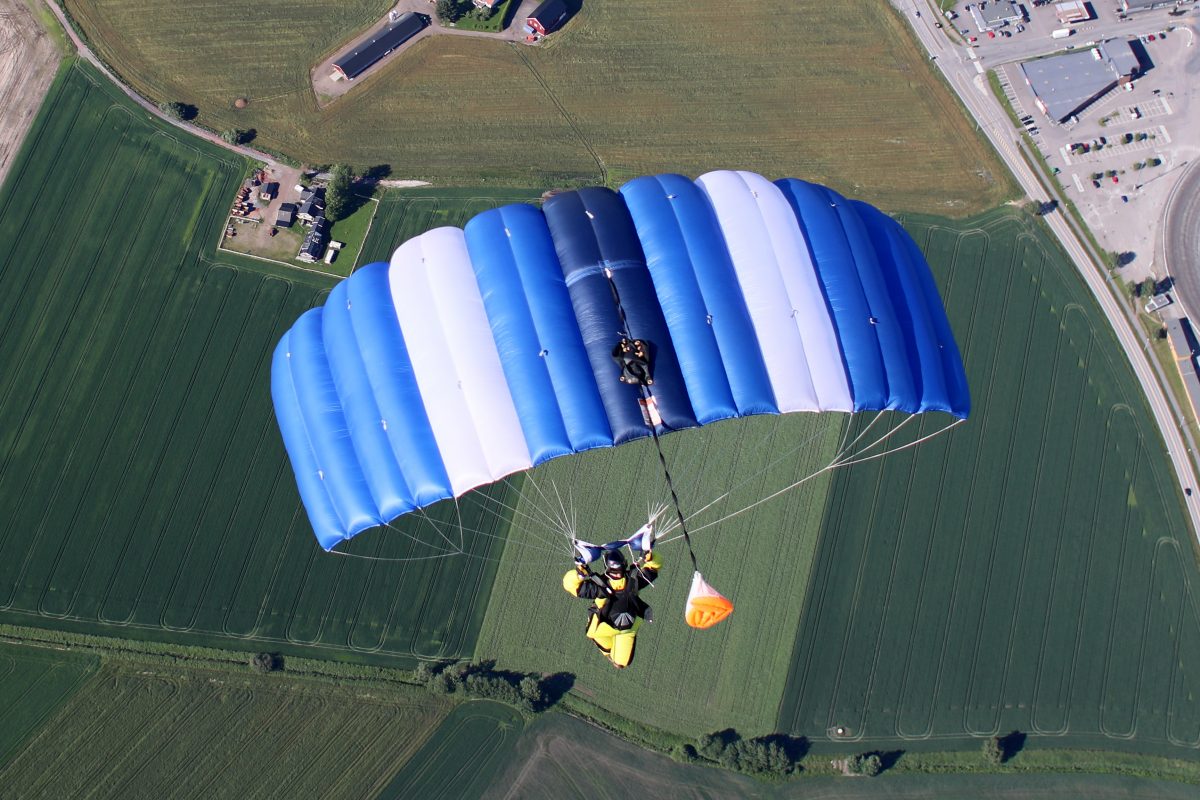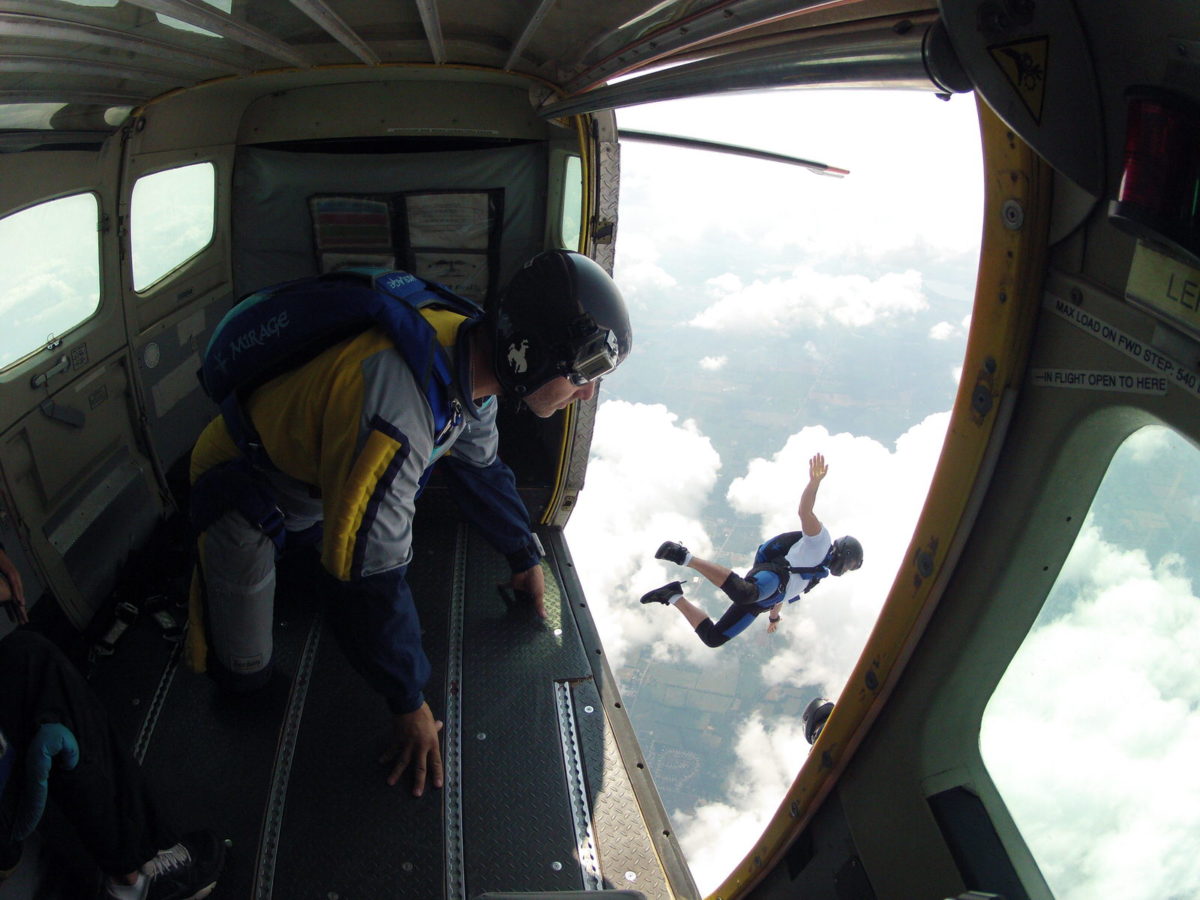- Michigan's Premier Skydiving Center
- Call Now: (517) 423-7720
The Difference Between IAD & AFF Skydiving
Saturday, September 14, 2019
- Skydive Tecumseh
- 9/14/19
- 0
- General
Did you start your skydiving career by dipping a toe in the water with a tandem skydive? Have you caught the skydiving bug and are itching to do more? As you begin looking into becoming a solo skydiver and achieving licensed skydiver status, you’ll come across a few acronyms: namely, Instructor Assisted Deployment (IAD) and Accelerated Freefall (AFF). While IAD and AFF are both certified methods of training progression approved by the United States Parachute Association to help you learn to skydive solo, they are vastly different in the approach that they take. Here’s the low down on the difference between IAD and AFF in skydiving.
What Does Instructor Assisted Deployment (IAD) Mean?
IAD stands for Instructor Assisted Deployment, which is where a USPA licensed instructor will have extracted your pilot chute (a small auxiliary parachute used to deploy the main parachute) and have it firmly in their grasp. As you exit the aircraft, the instructor will initiate the deployment process by releasing your pilot chute. This method is very similar to static line but does not require special equipment. In IAD, your instructor plays the “role” of the static line.
With IAD, you have less to focus on that first pivotal time out of the aircraft, as the initial work is done for you. Rather, your primary focus will be on a stable exit and your flight under the canopy. The first skydive occurs from around 3,500 feet, and on each successive skydive, you will go incrementally higher. Under IAD, you do not experience true freefall until about the sixth jump. Your progression will move from the instructor who is responsible for the deployment to solo deployment, to freefall, and finally, to subsequent solo deployment.
Although IAD is a certified method of skydiving training, it is not the primary form of skydiving training, and it can be difficult to find facilities that offer IAD.

Accelerated Freefall (AFF) Skydiving
AFF, or accelerated freefall, is the quickest method of progression for would-be skydivers, and for this reason, it is the standard method of skydiving training in the industry.
In the AFF program, after a ground course that takes anywhere from 6-8 hours, you will make your first “solo” skydive. On this skydive, you will be assigned two instructors who hold instructional ratings issued by the United States Parachute Association. Neither of these instructors is attached to you, as one would be on a tandem skydive. Rather, these instructors are there to hold on to grips on your jumpsuit and/or harness. These instructors are also there to provide instruction via hand signals and hands-on assistance to help keep you stable in freefall.
On your first AFF jump, you will experience a freefall of anywhere from 30-60 seconds. At the appropriate time, you are expected to deploy your own parachute by extracting your pilot chute and initiating the deployment sequence. On each subsequent jump, you will be taught the basic flying skills you need to be cleared to skydive without supervision.
At Skydive Tecumseh, we offer AFF skydiving training to help you transition from neoflyer to independent skydiver.

Skydiving Solo
Once you have completed your chosen progression and been cleared for self-supervision by your instructor, you will have the skills you need to complete solo skydives. In order to obtain an “A” License from the USPA, you will need to accrue 25 total skydives and demonstrate on a final “check dive” that you have mastered a variety of freefall skills and body flight maneuvers.
After this, the world is your oyster. Where will your skydiving progression take you? The sky is the limit!
Copyright © 2024, Skydive Tecumseh, All Rights Reserved.
DropZone Web Design & Marketing by Beyond Marketing, LLC
